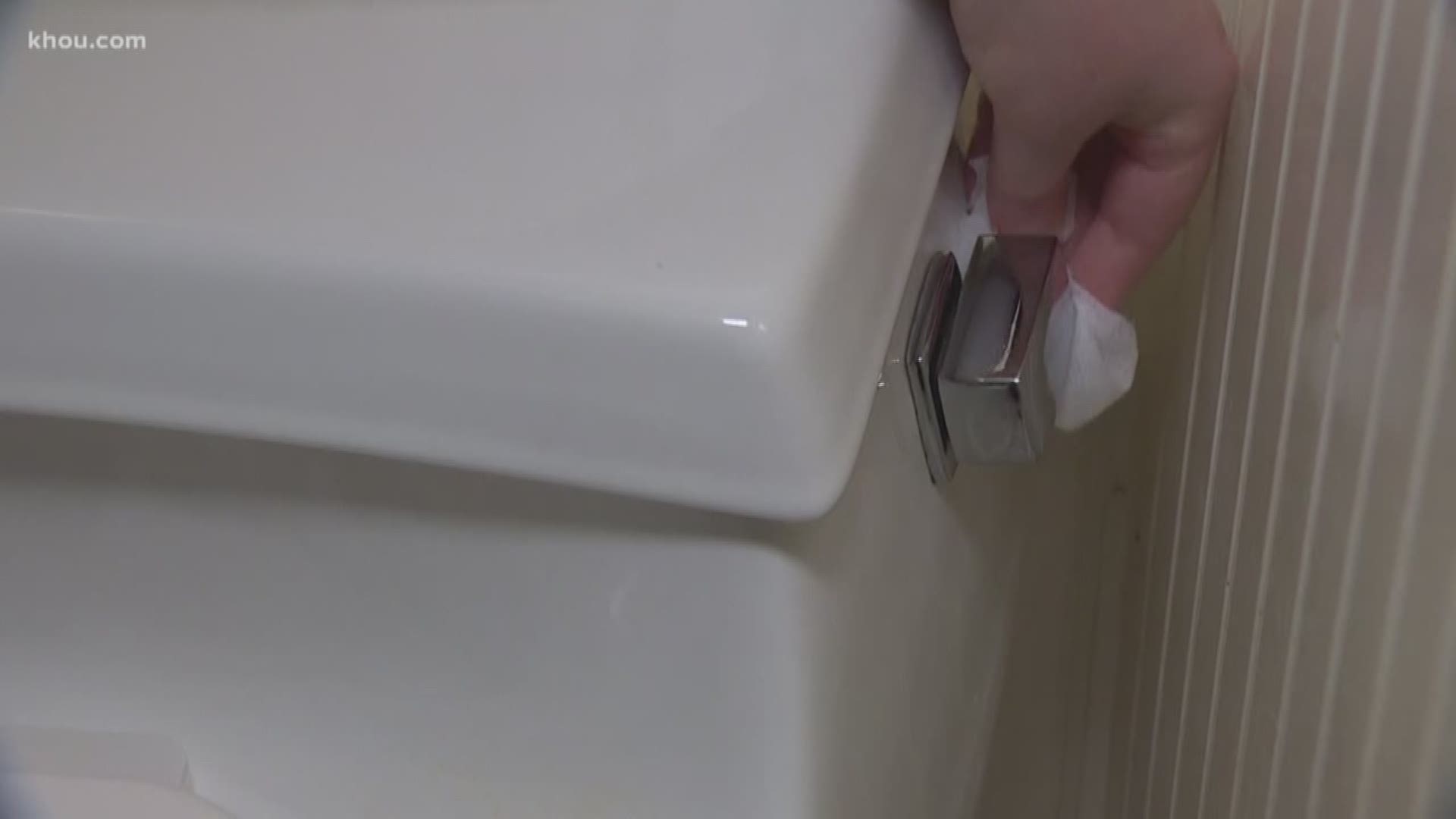HOUSTON — Spring cleaning has turned into daily cleaning for some thanks to COVID-19.
So what should you be concentrating on? Experts say household objects or surfaces that are frequently touched.
“Anything that you are touching frequently should be cleaned frequently and obviously washing your hands with soap and water,” said Dr. Rodrigo Hasbun, an infectious disease expert at UT Health.
Dr. Hasbun is talking about:
- Toilet handles
- Faucet handles
- Door knobs
- Light switches
- Counter tops
- Remote controls
- Cell phones
- Keyboards
- Anything that you or anyone else touches
So what about when you step outside your house?
”If you’re touching surfaces that could be contaminated and you are not sure, like at a gas station and you are pumping gas, it would be ideal to wash your hands or use hand sanitizer,” Dr. Hasbun said.
Doctors also recommend cleaning high-touched areas inside your car.
Now that you know what to focus on, what should you use to clean it?
Darren Williams is a chemistry professor at Sam Houston State University. He oversees the Cleaning Research Group.
He says you don’t need much.
“Tiny little bit of soapy water on a cloth. That will be enough to make that surface inhospitable to the virus. Just enough in a rag,” Williams said.
If you clean with bleach, you can dilute it with water and make a solution. But remember: a little bit of bleach goes a long way. Only a third of cup for a gallon of water.
“It does not have to be very concentrated. I think people think if a small amount is good, more is better," Williams said. "That is not the case. You can overdo bleach. You never mix bleach and ammonia. So many people die from mixing those two compounds."
Experts say don’t eat straight out of the to-go containers. Empty it out on the plate. Throw away the container and wash your hands before you eat.
For more recommendations, click here.
Coronavirus symptoms
The symptoms of coronavirus can be similar to the flu or a bad cold. Symptoms include a fever, cough and shortness of breath, according to the Centers for Disease Control. Some patients also have nausea, body aches, headaches and stomach issues. Losing your sense of taste and/or smell can also be an early warning sign.
Most healthy people will have mild symptoms. A study of more than 72,000 patients by the Centers for Disease Control in China showed 80 percent of the cases there were mild.
But infections can cause pneumonia, severe acute respiratory syndrome, kidney failure and even death, according to the World Health Organization. Older people with underlying health conditions are most at risk for becoming seriously ill. However, U.S. experts are seeing a significant number of younger people being hospitalized, including some in ICU.
The CDC believes symptoms may appear anywhere from two to 14 days after being exposed.
Human coronaviruses are usually spread through...
- The air by coughing or sneezing
- Close personal contact, such as touching or shaking hands
- Touching an object or surface with the virus on it, then touching your mouth, nose or eyes before washing your hands.
Help stop the spread of coronavirus
- Stay home when you are sick.
- Eat and sleep separately from your family members
- Use different utensils and dishes
- Cover your cough or sneeze with your arm, not your hand.
- If you use a tissue, throw it in the trash.
- Follow social distancing
Lower your risk
- Wash your hands often with soap and water for at least 20 seconds. If soap and water are not available, use an alcohol-based hand sanitizer.
- Avoid touching your eyes, nose, and mouth with unwashed hands.
- Avoid close contact with people who are sick.
- Clean and disinfect frequently touched objects and surfaces.
- If you are 60 or over and have an underlying health condition such as cardiovascular disease, diabetes or respiratory illnesses like asthma or COPD, the World Health Organization advises you to try to avoid crowds or places where you might interact with people who are sick.
Get complete coverage of the coronavirus by texting 'FACTS' to 713-526-1111.

